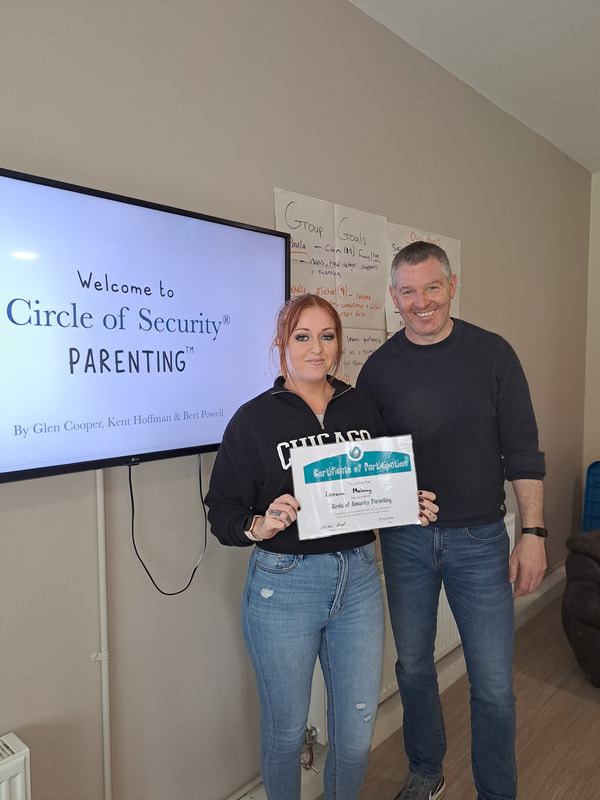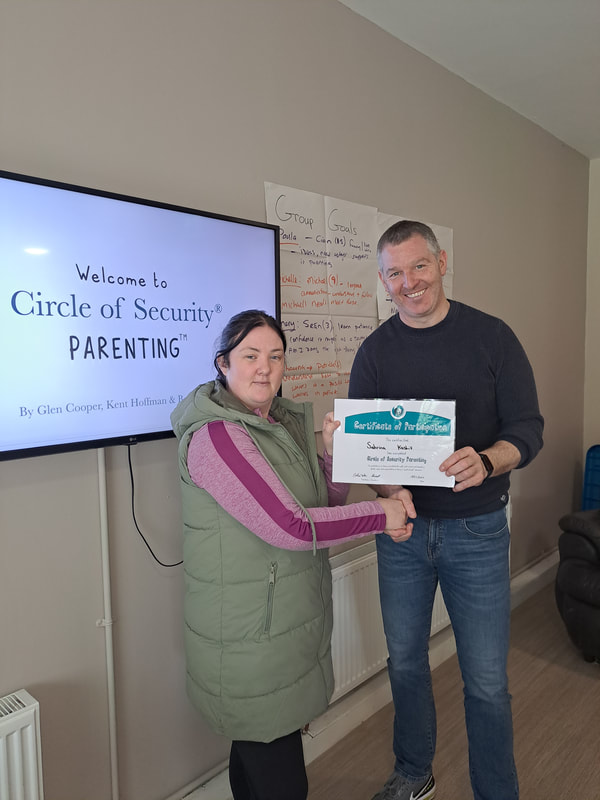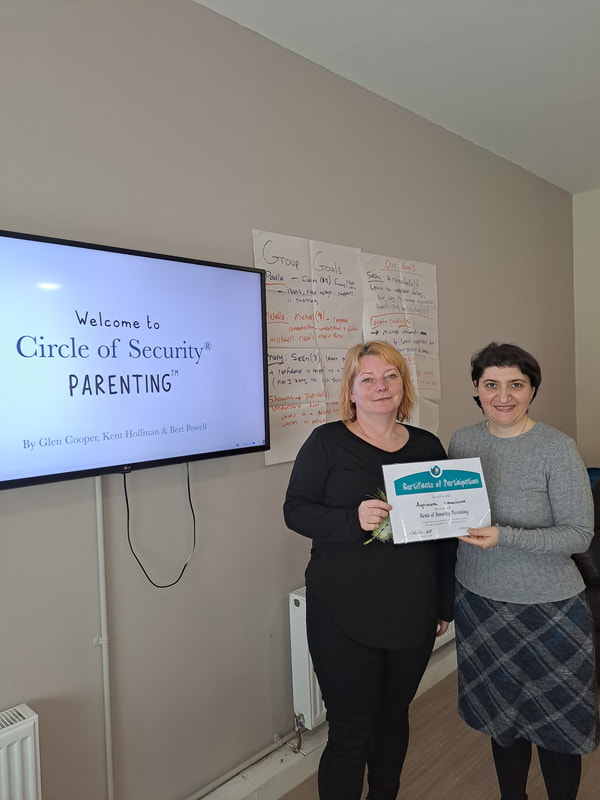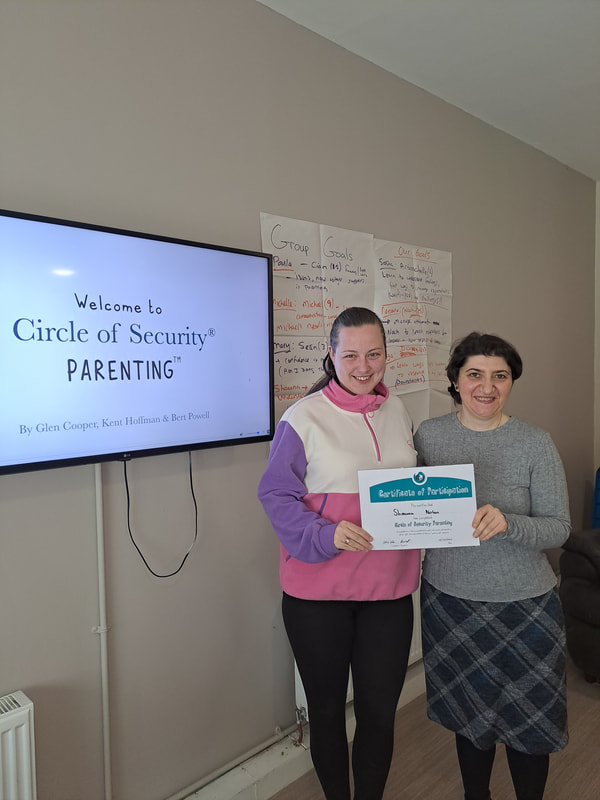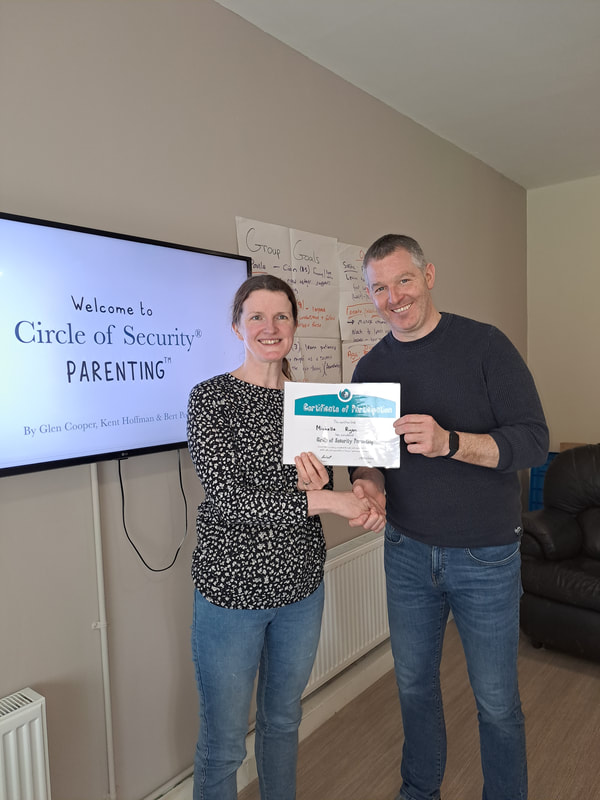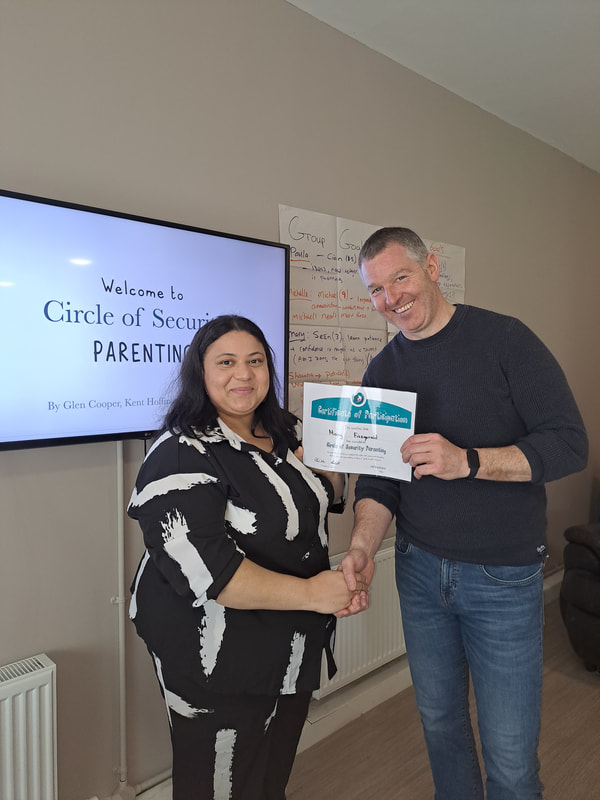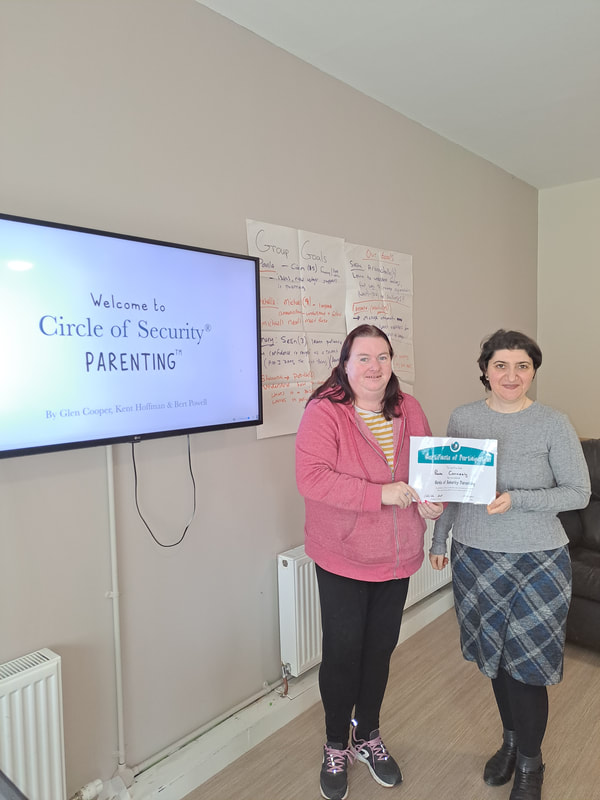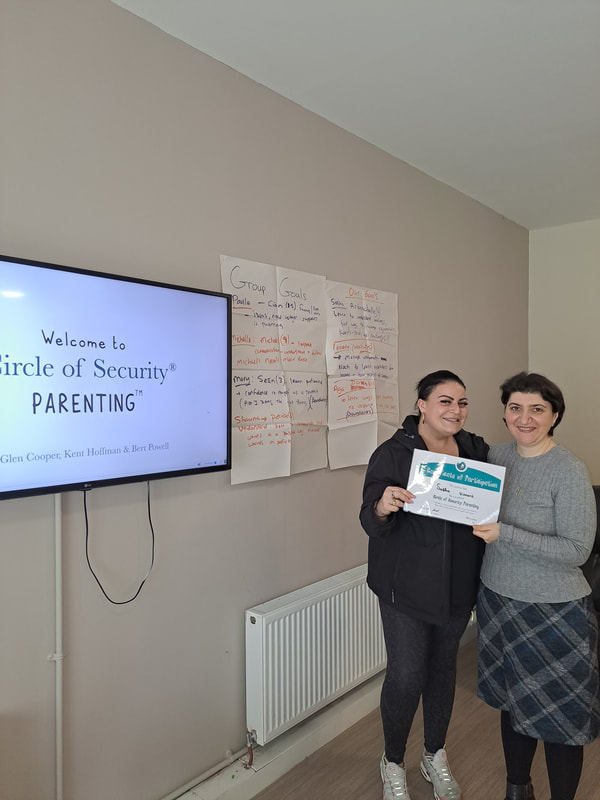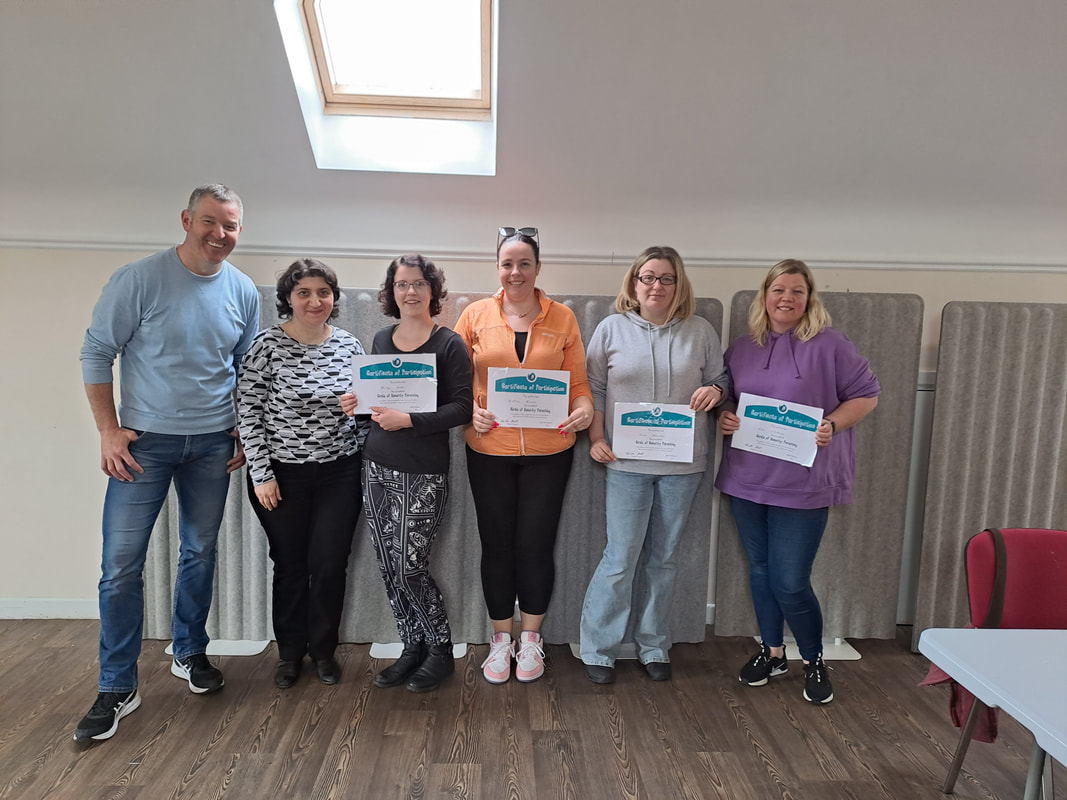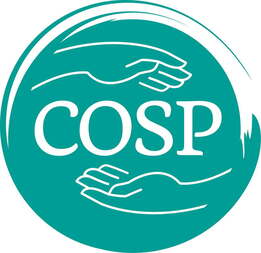Circle of Security-Parenting (COSP)
So what is COSP?:
It’s a program that was developed with the goal in mind of finding ways to enhance secure attachment in caregiving relationships, because as caregivers we all want to do the best we can, and of course, we want to have secure relationships with our children.
But what does that mean, ‘to enhance secure attachment’?
We all want to have secure relationships, but here’s the problem. Children don’t come with an owner’s manual. And it can be hard to know how to respond to the difficult behaviours and how to manage them. And, of course, every child is different. But here’s the good news. Children are born experts on the Circle of Security. Circle of Security is like an owner’s manual that’s been written by your child.
Learning how to use the Circle of Security helps us figure out caring ways to get the job done. Because it is no secret, caregiving can be the hardest job on the planet. Having an owner’s manual makes it easier to know the questions to ask that can help us find helpful answers. But sometimes when we are trying to make sense of what is going on with our children, the way we ask the question, can get it our way of finding caring ways to help.
It’s a program that was developed with the goal in mind of finding ways to enhance secure attachment in caregiving relationships, because as caregivers we all want to do the best we can, and of course, we want to have secure relationships with our children.
But what does that mean, ‘to enhance secure attachment’?
We all want to have secure relationships, but here’s the problem. Children don’t come with an owner’s manual. And it can be hard to know how to respond to the difficult behaviours and how to manage them. And, of course, every child is different. But here’s the good news. Children are born experts on the Circle of Security. Circle of Security is like an owner’s manual that’s been written by your child.
Learning how to use the Circle of Security helps us figure out caring ways to get the job done. Because it is no secret, caregiving can be the hardest job on the planet. Having an owner’s manual makes it easier to know the questions to ask that can help us find helpful answers. But sometimes when we are trying to make sense of what is going on with our children, the way we ask the question, can get it our way of finding caring ways to help.
You can express interest in our 2024
Circle Of Security Parenting programme below.
To register your interest in this programme you first must be eligible to attend all 9 weeks on Tuesday mornings 9:30am to 11:30am.
The 2 hour commitment by participants each week is an important aspect of the programme. (9:30am to 11:30am weekly).
To find out more please contact Cathal 087 1232489 or complete the expression of interest from below.
Also please view the video on this page that explains the COSP programme in detail.
- You must be a parent to a child aged between 4 months & 6years.
- Be in a position to find 2 hours per week to attend the programme Tuesday mornings 9:30-11:30am.
- Be open to learning and listening to others in a group setting.
- Places are limited to 8 parents and pre-registration is recommended.
The 2 hour commitment by participants each week is an important aspect of the programme. (9:30am to 11:30am weekly).
To find out more please contact Cathal 087 1232489 or complete the expression of interest from below.
Also please view the video on this page that explains the COSP programme in detail.
Congratulation to our Circle Of Security Parenting Graduates 2024
There is no such thing as Perfect Parenting-
We just need to be 'Good enough'
Congratulation to our Circle Of Security Parenting Graduates 2023
Well done Ashley, Gillian, Grace & Lisa and missing from above John & Roisín who completed the programme also. (May 2023).
Click on the logo to check out the Circle of Security website.
Here are some founding principles that underlie the Circle of Security models of intervention:
Attachment problems in infancy and early childhood increase the probability of psychopathology later on in life.
Secure attachment relationships with caregivers are a protective factor for infants and pre-schoolers, setting the foundation for social competence and promoting effective functioning of the emotion regulation and stress response systems.
The quality of the attachment relationship is amenable to change.
Learning, including therapeutic change, occurs from within a secure base relationship.
Lasting change in the attachment relationship comes from caregivers’ developing specific relationship capacities rather than learning techniques to manage behaviour.
All caregivers want what is best for their children.
Attachment problems in infancy and early childhood increase the probability of psychopathology later on in life.
Secure attachment relationships with caregivers are a protective factor for infants and pre-schoolers, setting the foundation for social competence and promoting effective functioning of the emotion regulation and stress response systems.
The quality of the attachment relationship is amenable to change.
Learning, including therapeutic change, occurs from within a secure base relationship.
Lasting change in the attachment relationship comes from caregivers’ developing specific relationship capacities rather than learning techniques to manage behaviour.
All caregivers want what is best for their children.


